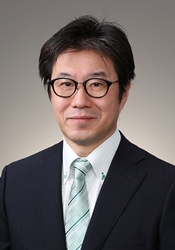Blepharoplasty – Eyelid Surgery Article Reveals Surprising Facts for Asians with drooping eyelids
Plaza Clinic has published its latest article covering Blepharoplasty – Eyelid Surgery, which is aimed primarily at Asians with drooping eyelids . The article is available for viewing in full at Asian double-eyelid procedure – Non Cutting Blepharoplasty

Plaza Clinic has published a new article entitled Non-cutting Double Eyelids for Asians introduces Asian double-eyelid procedure, which sheds light on the most important aspects of Blepharoplasty - Eyelid Surgery for Asians with drooping eyelids. Anyone seeking a blepharoplasty that suffers from sagging eyelids and other interested individuals can view the full article at Asian double-eyelid procedure - Non Cutting Blepharoplasty at http://plazaclinic.net/surgical.html
The article includes several interesting pieces of information, one in particular is this non-cutting blepharoplasty works also for Caucasian sagging eyelids. This should be of particular interest to those with drooping eyelids because Double-eyelid surgery is the most popular cosmetic surgical procedure in Japan.
One of the most important piece of information the article tries to convey and communicate is most surgeons in the United States perform cutting-type double eyelid surgery, Japanese women prefer non-incisional techniques. The best example of this is perhaps found in the following extract:
'Doctors in Japan and the USA describe an improved procedure that uses double sutures and twists (called DST technique) to create double eyelids in Asian patients'
In discussing the article's creation, Robert Katsuhiro Kure, MD, PhD., Owner at Plaza Clinic said:
"Non-incisional procedure is “simple, durable, and virtually scar free.”
Regular readers of Plaza Clinic will notice the article takes a familiar tone, which has been described as 'Informational'.
Plaza Clinic now welcomes comments and questions from readers, in relation to the article, as they are intent on educating those interested in blepharoplasty that there are options - both surgical and non-surgical. The reason is simply because the non-cutting method uses only two sutures on each upper eyelid, with the durability explained by the areas of ties and the central twists that result in more secure and therefore longer-lasting results.
Anyone who has a specific question about a past, present, or future article can contact Plaza Clinic via their website at http://plazaclinic.net/

